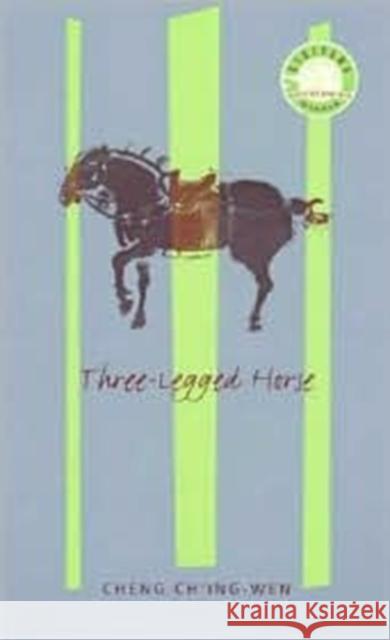Three-Legged Horse » książka
Three-Legged Horse
ISBN-13: 9780231113861 / Angielski / Twarda / 1998 / 240 str.
Here are twelve moving short stories about Taiwan and its people by one of the island's most popular writers, Cheng Ch'ing-wen. Focusing primarily on village life and the effects of modernization on Taiwan in the postwar years, Cheng is one of the most respected of the island's "nativist" writers, yet this is his first book to be translated into English. This anthology represents the best of his fictional efforts across a forty-year span and encompasses his major themes: the tensions between men and women, parents and children, city and village, tradition and modernity. Taken individually, each story presents a moving portrait of paralysis, frustration, or self-realization. Together, they weave a complex tapestry of life in a rapidly changing country.
Cheng Ch'ing-wen's stories tell of men grappling with their fears and frustrations, from "The River Suite," in which a ferryman-championed throughout his small town for twice saving a drowning person-lacks the courage to confess his love to a young woman before she dies, to "Spring Rain," in which a man struggles to come to terms with his seemingly rootless life as both an orphaned child and an infertile husband. Here too are illustrations of the changing place of women in Taiwan, as they take on more powerful roles and awaken to a sense of their own sexuality: a woman forcibly separated from her husband by her jealous mother-in-law walks for hours through the night to see him on his birthday, only to turn back and go straight home before her absence is noticed; a disappointed young female scholar with a deformed hand comes to realize--after many painful rejections--that loneliness is not reason enough to become intimate with a man. And generations clash in "Thunder God's Gonna Getcha," as a mother's cruelty is repaid years later by a son's coldness. Death reverberates throughout these stories as characters recall deceased spouses, lovers, relatives, and friends in vivid detail. The focus, however, is not on the dead but on the living. In the title story, an old man carves exquisite lame horses as both a penance for having terrorized a town as a police officer during the Japanese occupation of Taiwan in World War II and a memorial to his deceased wife, who was nobler and more courageous than he. This book is a kind of gallery of three-legged horses: portraits of people maimed and transformed-for better or worse-by the suffering that life brings.










